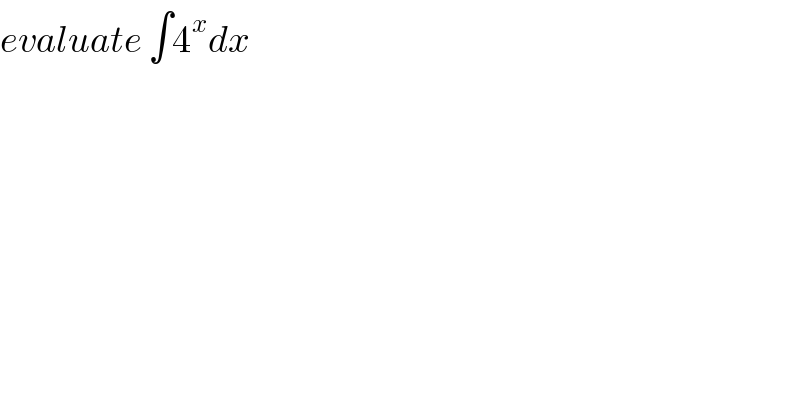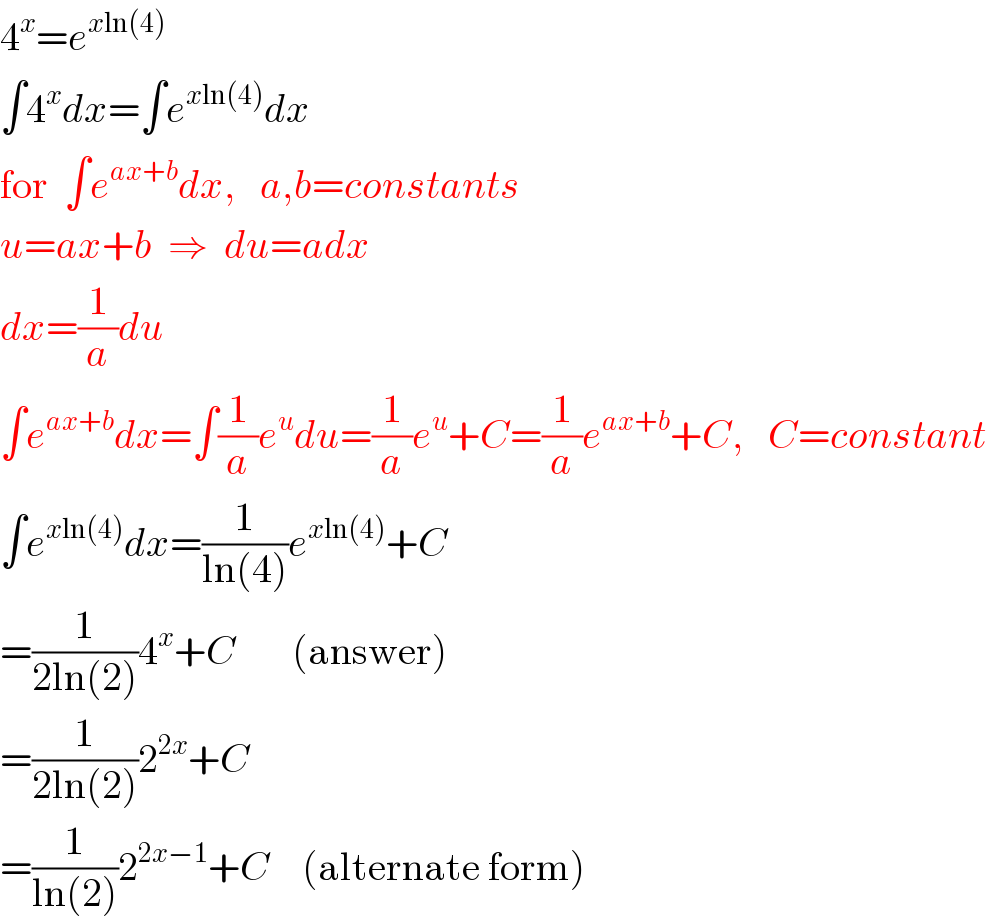Question Number 8783 by uchechukwu okorie favour last updated on 27/Oct/16

$${evaluate}\:\int\mathrm{4}^{{x}} {dx} \\ $$
Answered by FilupSmith last updated on 27/Oct/16

$$\mathrm{4}^{{x}} ={e}^{{x}\mathrm{ln}\left(\mathrm{4}\right)} \\ $$$$\int\mathrm{4}^{{x}} {dx}=\int{e}^{{x}\mathrm{ln}\left(\mathrm{4}\right)} {dx} \\ $$$$\mathrm{for}\:\:\int{e}^{{ax}+{b}} {dx},\:\:\:{a},{b}={constants} \\ $$$${u}={ax}+{b}\:\:\Rightarrow\:\:{du}={adx} \\ $$$${dx}=\frac{\mathrm{1}}{{a}}{du} \\ $$$$\int{e}^{{ax}+{b}} {dx}=\int\frac{\mathrm{1}}{{a}}{e}^{{u}} {du}=\frac{\mathrm{1}}{{a}}{e}^{{u}} +{C}=\frac{\mathrm{1}}{{a}}{e}^{{ax}+{b}} +{C},\:\:\:{C}={constant} \\ $$$$\int{e}^{{x}\mathrm{ln}\left(\mathrm{4}\right)} {dx}=\frac{\mathrm{1}}{\mathrm{ln}\left(\mathrm{4}\right)}{e}^{{x}\mathrm{ln}\left(\mathrm{4}\right)} +{C} \\ $$$$=\frac{\mathrm{1}}{\mathrm{2ln}\left(\mathrm{2}\right)}\mathrm{4}^{{x}} +{C}\:\:\:\:\:\:\:\left(\mathrm{answer}\right) \\ $$$$=\frac{\mathrm{1}}{\mathrm{2ln}\left(\mathrm{2}\right)}\mathrm{2}^{\mathrm{2}{x}} +{C} \\ $$$$=\frac{\mathrm{1}}{\mathrm{ln}\left(\mathrm{2}\right)}\mathrm{2}^{\mathrm{2}{x}−\mathrm{1}} +{C}\:\:\:\:\left(\mathrm{alternate}\:\mathrm{form}\right) \\ $$
